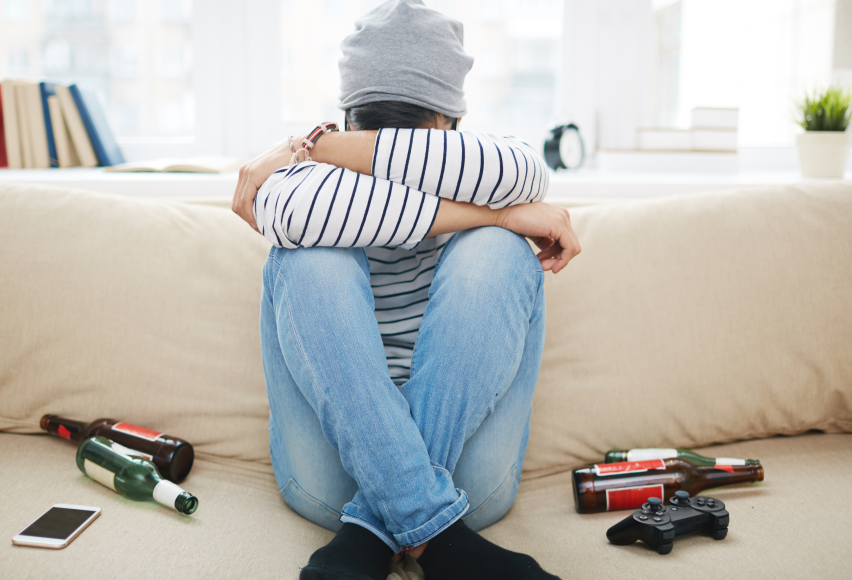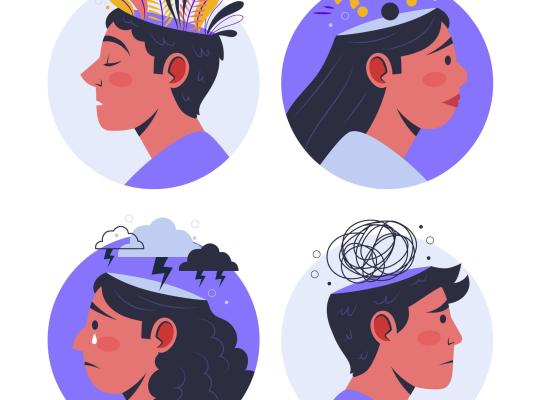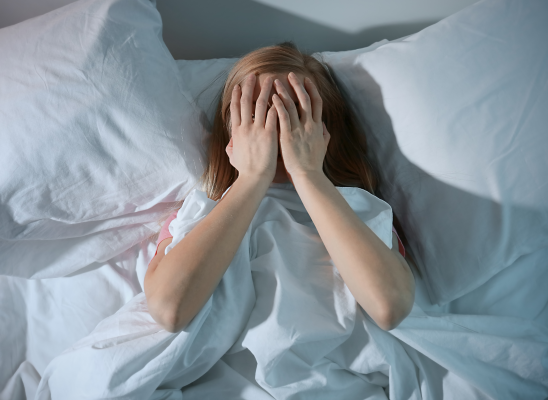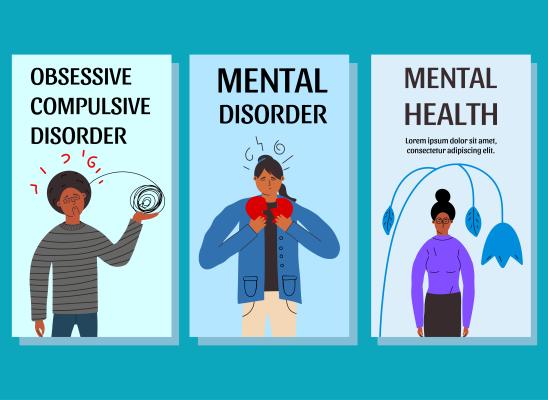
Online test
Find out the severity of your symptoms with this free online test
Life with OCD can already feel like a non-stop mental marathon. Now add addiction to the mix, and you’ve got two heavy hitters battling it out in your brain at the same time. It’s exhausting, confusing, and can feel really isolating. But here’s the good news: you’re not alone, and recovery from both is possible.
Obsessive-Compulsive Disorder (OCD) and substance use disorders (SUD) often show up together. This is called a dual diagnosis or co-occurring disorder. It complicates treatment, but it also gives us insight into how one condition can feed off the other—and more importantly, how to break the cycle.
Let’s dig into what it means to live with both OCD and addiction, how to manage the symptoms, and what the best treatment approaches look like.
Why OCD and Addiction Often Go Hand-in-Hand
First, a quick refresher: OCD is a mental health condition where people get stuck in a loop of unwanted thoughts (obsessions) and repetitive behaviors (compulsions). It’s not just about handwashing or checking locks. OCD can revolve around fears of harm, taboo thoughts, contamination, perfectionism—you name it. These thoughts feel intrusive, distressing, and out of control.
Now imagine living with that chaos daily. It makes sense why someone might reach for alcohol, weed, pills, or other substances to quiet the noise—even if it’s temporary. Research shows people with OCD are at higher risk for substance abuse, especially if their OCD started early or hasn’t been properly treated (Fontenelle et al., 2019). Some researchers report that roughly 25% of people with OCD live with substance use struggles (International OCD Foundation, n.d.). However, estimations and data vary depending on the substance and population.
Addiction can be a form of “self-medication.” It’s a way to escape the mental torture that OCD brings. But here’s the twist: substances usually make things worse in the long run. Alcohol or drugs might quiet the obsessions for a few hours, but once they wear off, the symptoms usually come back stronger. The brain gets stuck in a cycle of fear → compulsion → temporary relief → substance use → more fear.
Common Struggles When You Have Both
Living with OCD and addiction at the same time can feel like a tug-of-war. Here are some common ways they clash:
- Substances fuel compulsions: Some people drink or use to “help” themselves carry out rituals—like calming nerves before checking or cleaning. This reinforces the OCD and makes both harder to treat.
- Withdrawal worsens OCD: Detox and withdrawal can crank up anxiety, making OCD symptoms spike. People in early recovery might feel like their OCD is unbearable without the drug.
- Shame and secrecy: Both OCD and addiction can bring guilt and shame. People may hide their behaviors, avoid asking for help, or feel unworthy of support.
- Treatment confusion: Not all therapists or treatment centers know how to handle both disorders. You might get help for one while the other is ignored, which often leads to relapse or worsening symptoms.
That’s why integrated care—where both disorders are treated together—is so important.
Best Practices for Treating OCD + Addiction Together
The gold standard for OCD is Exposure and Response Prevention (ERP) therapy. For addiction, treatment might include therapy, group support, medication, and sometimes rehab. But when you have both, you need a program that blends those approaches.
Here’s what an effective dual diagnosis program should include:
1. Integrated Treatment Team
You’ll want professionals who understand both OCD and substance use. That could include a therapist trained in ERP, a psychiatrist who knows how to prescribe medication safely during recovery, and addiction specialists. Everyone needs to be on the same page.
2. ERP with Extra Support
ERP involves gradually facing your fears without doing compulsions. When someone is also recovering from addiction, ERP might need to move a little slower or be paired with extra coping tools to handle cravings and withdrawal. But it’s still effective and essential (McHugh et al., 2021).
3. Medication Management
Some medications used for OCD, like SSRIs, can also help with cravings and mood during addiction recovery. But medication choices should be carefully monitored—especially if there’s a history of substance misuse (Fineberg et al., 2020).
4. Peer and Group Support
Many people benefit from joining groups where they can talk openly about both OCD and addiction. Whether it's a 12-step group or an OCD-specific support circle, connecting with others is key.
5. Relapse Prevention
Relapse isn’t a sign of failure—it’s part of the process for many people. A solid treatment plan includes relapse prevention strategies that work for both disorders. That might mean identifying triggers, building routines, and having a support person to check in with.
Tips for Managing OCD During Recovery
When you’re getting sober or cutting back on substance use, your brain can feel like it’s in overdrive. OCD might flare up as your brain searches for something else to latch onto. Here are a few ways to manage OCD while staying focused on recovery:
- Stick to a schedule: Routines help reduce anxiety and give your brain less space to spiral.
- Learn grounding techniques: Deep breathing, mindfulness, or even splashing cold water on your face can help during intense urges or obsessions.
- Don’t isolate: OCD and addiction both love secrecy. Try to keep talking—whether it’s to a friend, therapist, or group.
- Use healthy distractions: Go for a walk, draw, journal, play music, call someone—anything that helps break the cycle in a healthy way.
- Celebrate small wins: Progress isn’t always a straight line. Mark your victories, no matter how small. Skipped a compulsion? Stayed sober for a day? That’s worth recognizing.
Finding the Right Program
If you’re dealing with OCD and addiction, not just any treatment center will do. You need one that understands the overlap. Here’s what to look for:
- Programs that offer both ERP and addiction counseling
- Staff trained in dual diagnosis or co-occurring disorders
- A flexible approach—because OCD isn’t one-size-fits-all
- Willingness to work with your medication needs
- Long-term support, not just short-term fixes
Programs like this are becoming more available, but they’re still not everywhere. It may take some research, but it’s worth the effort to find the right match.
Final Thoughts: You Can Get Better
If you’ve been stuck in a cycle of OCD and addiction, it’s easy to believe that healing isn’t for you. But that’s the OCD talking. Recovery is real, and you deserve it. It won’t happen overnight, and it probably won’t be perfect. But you don’t have to fight both of these battles alone.
There are programs and people out there who get it—who know what it’s like to have your brain constantly buzzing while also trying to fight off cravings or shame. The right support can make all the difference.
Ready to start that journey? Visit STOPOCD.com to learn about expert-backed treatment for OCD and dual diagnosis care. Whether you’re looking for therapy, medication support, or just someone to listen, they’re here to help you take the next step.
References
- Fineberg, N. A., Reghunandanan, S., Brown, A., & Pampaloni, I. (2020). Evidence-based pharmacotherapy of obsessive-compulsive disorder. The International Journal of Neuropsychopharmacology, 23(11), 685–700. https://pubmed.ncbi.nlm.nih.gov/22226028/
- Mancebo, M. C., Pinto, A., Eisen, J. L., Rasmussen, S. A., & Phillips, K. A. (2008). Substance use disorders in an obsessive-compulsive disorder clinical sample. Psychiatry Research, 160(2), 204–211. https://pmc.ncbi.nlm.nih.gov/articles/PMC2705178/#:~:text=As%20part%20of%20their%20intake,by%20at%20least%20one%20year.7
- Jacobs, W., et al. (2025). Substance use and disordered eating risk among college students with obsessive-compulsive disorder conditions. Journal of American College Health. https://pubmed.ncbi.nlm.nih.gov/39746071/
- Blom, R. M., Koeter, M. W., van den Brink, W., de Graaf, R., Ten Have, M., & Denys, D. (2011). Co-occurrence of obsessive-compulsive disorder and substance use disorder in the general population. Addiction, 106(12), 2178–2185. https://pubmed.ncbi.nlm.nih.gov/21714825/
- International OCD Foundation. (n.d.). Co-occurring OCD and substance use disorder: What the research tells us. https://iocdf.org/expert-opinions/co-occurring-ocd-and-substance-use-disorder-what-the-research-tells-us/
- Randazza, M. P., McKay, D., Bakhshaie, J., Storch, E. A., & Zvolensky, M. J. (2022). Unhealthy Alcohol Use Associated with Obsessive-Compulsive Symptoms: The Moderating Effects of Anxiety and Depression. Journal of Obsessive-Compulsive and Related Disorders, 32, 100713. https://doi.org/10.1016/j.jocrd.2022.100713
- Akosile, A. Y., Tiyatiye, B., & Akosile, W. (2025). A Systematic Review on the Prevalence of Comorbid Substance Use Disorder in Obsessive–Compulsive Disorder Among the General Population. Psychoactives, 4(1), 2. https://doi.org/10.3390/psychoactives4010002
- Blom, R. M., Koeter, M., van den Brink, W., de Graaf, R., Ten Have, M., & Denys, D. (2011). Co-occurrence of obsessive-compulsive disorder and substance use disorder in the general population. Addiction (Abingdon, England), 106(12), 2178–2185. https://doi.org/10.1111/j.1360-0443.2011.03559.x
Online test
Find out the severity of your symptoms with this free online test
Start your journey with StopOCD
Take control of your life and find freedom from OCD through professional therapy and evidence-based cognitive behavioral techniques.
Start Now



